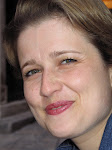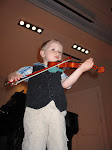9/16 (Wed): Parent-Teacher Orientation, 6:30 PM
9/23 (Wed): Private Lesson #1
9/30 (Wed): Private Lesson #2 & Group Lesson #1
10/7 (Wed): Private Lesson #3
10/14 (Wed): Private Lesson #4 & Group Lesson #2
10/21 (Wed): Private Lesson #5
10/28 (Wed): Private Lesson #6 & Group Lesson #3
11/4 (Wed): Private Lesson #7
11/11 (Wed): Private Lesson #8 & Group Lesson #4
11/18 (Wed): Private Lesson #9
11/25: THANKSGIVING HOLIDAY
12/2 (Wed): Private Lesson #10 & Group Lesson #5
12/9 (Wed): Private Lesson #11
12/16 (Wed): Private Lesson #12 & Group Lesson #6
December TBD: WINTER CONCERT
Thursday, August 27, 2009
Thursday, August 20, 2009
Rates
Weekly Private Lesson 1/2 Hour $20
Bi-weekly Group Lesson $5
TOTAL FALL 2009 TUITION $270
Breakdown: 12 Private Lessons $240 + 6 Group Lessons $30
Bi-weekly Group Lesson $5
TOTAL FALL 2009 TUITION $270
Breakdown: 12 Private Lessons $240 + 6 Group Lessons $30
Wednesday, August 12, 2009
SUZUKI TRIANGLE (Student, Parent, TEACHER)
Responsibilities of a Suzuki TEACHER
1. Respect and communicate in all directions
2. Educate the parents as home teacher
3. Clarifying parental responsibilities (Suggesting how to practice, listening to recordings, taking notes, etc)
4. Affirming and encouraging the parents' role as much as possible
5. Listen to parent about how child learns
1. Respect and communicate in all directions
2. Educate the parents as home teacher
3. Clarifying parental responsibilities (Suggesting how to practice, listening to recordings, taking notes, etc)
4. Affirming and encouraging the parents' role as much as possible
5. Listen to parent about how child learns
SUZUKI TRIANGLE (Student, PARENT, Teacher)
7 SUZUKI PARENTAL COMMITMENTS (short version)
1. Practice Daily
2. Listen Daily
3. Strive for Beautiful Tone
4. Strive for Technical Excellence
5. Review
6. Attend Group Classes
7. Create Positive and Nurturing environment
RESPONSIBILITIES OF SUZUKI PARENT (long version)
1. PLAYING RECORDINGS
Be responsible for playing the current record daily, helping to establish the basic patterns of record use.
2. ATTENDING LESSONS
Attend lessons, except on the advice of the teacher, after consultation. Keep in the background while there, remembering the child cannot learn from two teachers at once. If you handle it well, he will not often look your way during lessons after a few weeks.
3. TAKE NOTES DURING LESSON
Parent is quietly in the background during lesson, and acts as a 'secretary' by taking diligent notes, saving questions for the end of the lesson.
4. ALWAYS PRACTE HOME with the child = BE TEACHER's ASSISTANT AT HOME
Set up a routine of practice time at home and make a goal to 'weave practicing into your family life'.
5. BECOMING AWARE OF HOW THE CHILD LEARNS
6. LEARNING BASIC SKILLS OF THE INSTRUMENT
7. OBSERVING & LEARNING FROM OTHER CHILD's LESSONS
Additional resources on this topic:
http://www.cvsmusic.org/responsibilities_of_a_suzuki_par.htm
1. Practice Daily
2. Listen Daily
3. Strive for Beautiful Tone
4. Strive for Technical Excellence
5. Review
6. Attend Group Classes
7. Create Positive and Nurturing environment
RESPONSIBILITIES OF SUZUKI PARENT (long version)
1. PLAYING RECORDINGS
Be responsible for playing the current record daily, helping to establish the basic patterns of record use.
2. ATTENDING LESSONS
Attend lessons, except on the advice of the teacher, after consultation. Keep in the background while there, remembering the child cannot learn from two teachers at once. If you handle it well, he will not often look your way during lessons after a few weeks.
3. TAKE NOTES DURING LESSON
Parent is quietly in the background during lesson, and acts as a 'secretary' by taking diligent notes, saving questions for the end of the lesson.
4. ALWAYS PRACTE HOME with the child = BE TEACHER's ASSISTANT AT HOME
Set up a routine of practice time at home and make a goal to 'weave practicing into your family life'.
5. BECOMING AWARE OF HOW THE CHILD LEARNS
6. LEARNING BASIC SKILLS OF THE INSTRUMENT
7. OBSERVING & LEARNING FROM OTHER CHILD's LESSONS
Additional resources on this topic:
http://www.cvsmusic.org/responsibilities_of_a_suzuki_par.htm
Introduction to Suzuki's Philosophy
Parent Involvement
As when a child learns to talk, the parent plays a crucial role in their child’s musical learning. They attend lessons with the child and serve as “home teachers” during the week. Parents work with the teacher to create an enjoyable learning environment.
Early Beginning
An important element of the Suzuki Method is attention paid to sensory development. In the early years, developing the ear, motor skills, and mental processes are equally important in music as in language. These qualities can begin at birth; formal training can begin at age three or four, but it is never too late to begin.
Listening
Children learn words after hearing them spoken hundreds of times by others. Listening to music every day is important, especially listening to the pieces in the Suzuki repertoire so the child knows them intimately.
Repetition
Constant repetition is essential in learning to play an instrument. When children learn a new word or piece of music, they add it to their vocabulary or repertoire, gradually using it in new and more sophisticated ways.
Encouragement
As with language, the child’s efforts to learn an instrument should be met with sincere praise and encouragement. Each child learns at his/her own rate, building on small steps so that each one can be mastered. We allow children to learn through trial and error, gently correcting through demonstration, and following subsequent efforts with praise and delight. In so doing, we motivate our children and provide a trusting, safe environment for them to attempt new challenges and gain confidence.
Learning with Other Children
In addition to private lessons, children participate in regular group lesson and performances at which they learn from and are motivated by each other.
Graded Repertoire
Children do not practice exercises to learn to talk, but use language for its natural purpose of communication and self-expression. Pieces in the Suzuki repertoire are designed to present technical problems to be learned in the context of the music.
Delayed Reading
Children learn to read the written word after their ability to talk has been well established. In the same way, children develop basic technical skills and ear training before beginning to read music
As when a child learns to talk, the parent plays a crucial role in their child’s musical learning. They attend lessons with the child and serve as “home teachers” during the week. Parents work with the teacher to create an enjoyable learning environment.
Early Beginning
An important element of the Suzuki Method is attention paid to sensory development. In the early years, developing the ear, motor skills, and mental processes are equally important in music as in language. These qualities can begin at birth; formal training can begin at age three or four, but it is never too late to begin.
Listening
Children learn words after hearing them spoken hundreds of times by others. Listening to music every day is important, especially listening to the pieces in the Suzuki repertoire so the child knows them intimately.
Repetition
Constant repetition is essential in learning to play an instrument. When children learn a new word or piece of music, they add it to their vocabulary or repertoire, gradually using it in new and more sophisticated ways.
Encouragement
As with language, the child’s efforts to learn an instrument should be met with sincere praise and encouragement. Each child learns at his/her own rate, building on small steps so that each one can be mastered. We allow children to learn through trial and error, gently correcting through demonstration, and following subsequent efforts with praise and delight. In so doing, we motivate our children and provide a trusting, safe environment for them to attempt new challenges and gain confidence.
Learning with Other Children
In addition to private lessons, children participate in regular group lesson and performances at which they learn from and are motivated by each other.
Graded Repertoire
Children do not practice exercises to learn to talk, but use language for its natural purpose of communication and self-expression. Pieces in the Suzuki repertoire are designed to present technical problems to be learned in the context of the music.
Delayed Reading
Children learn to read the written word after their ability to talk has been well established. In the same way, children develop basic technical skills and ear training before beginning to read music
Subscribe to:
Posts (Atom)



